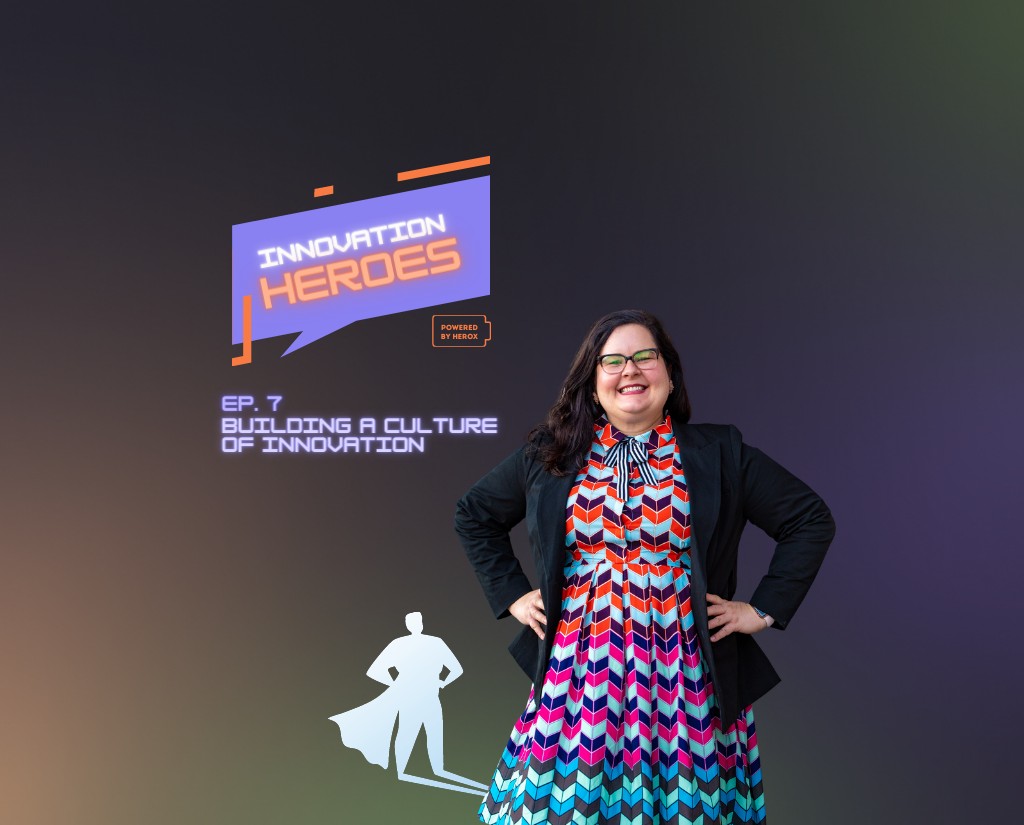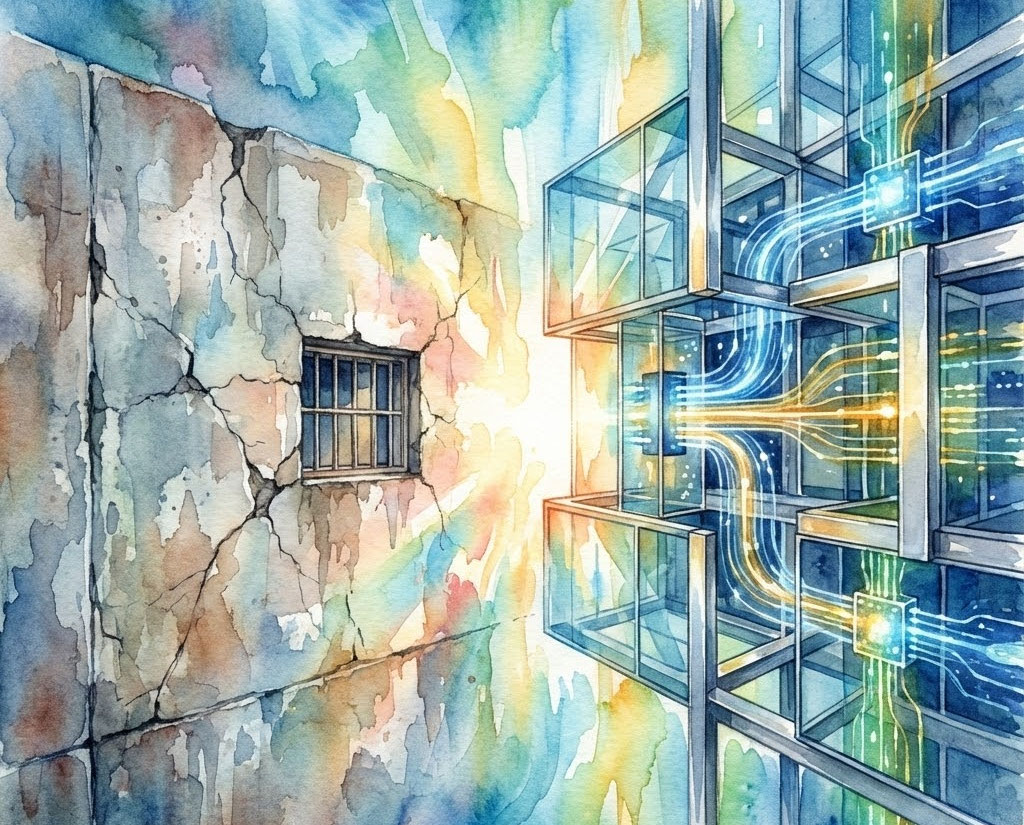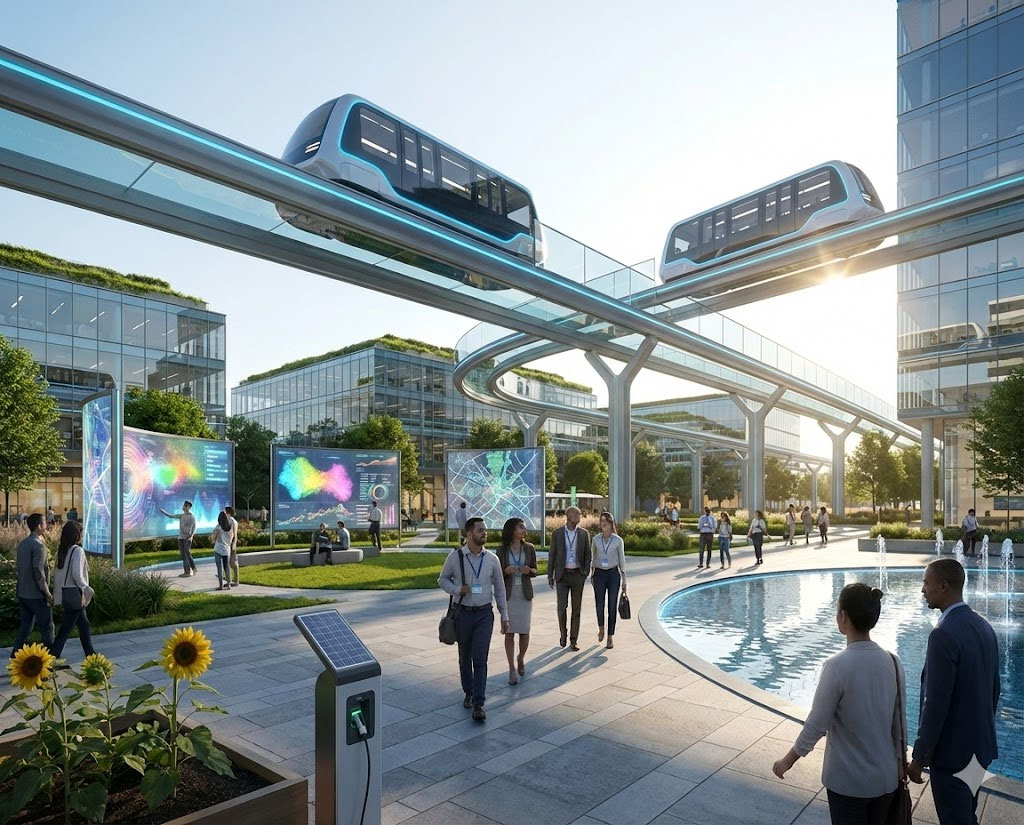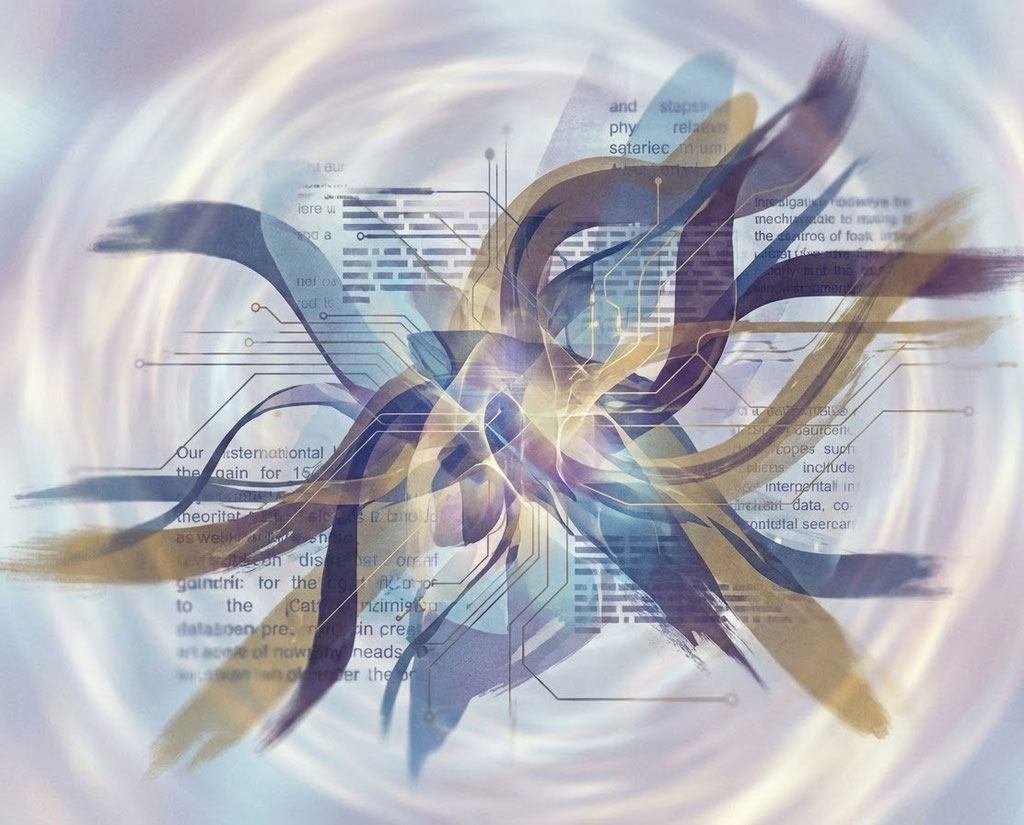
Innovation Heroes Episode.7
🔊 Podcast: This episode of Innovation Heroes resulted in a crazy-passionate dialogue with empath-preneur Amy J. Wilson on building a culture of innovation, the effects of poor workplace culture, and the difference between growing a community vs. a network. From building accelerators and authoring best-selling books to her residency in the White House, Amy has amassed a wealth of compassion and knowledge and shares about her current experience building a culture of innovation at Booz Allen. Tune in to experience the impact of her genuine influence on host Adam Olsen in real-time.
🔉 Click to listen 👇
Highlights from Episode 7
We've pulled out some excerpts shared by Amy from her interview, there were so many to choose from! Be sure to tune into the full episode for an ''energization" (a new word coined by Adam in this episode).
What is Empathy for Change?
Empathy for Change is now a cooperative that helps create cultures and communities where people can be their whole selves. We work on helping to transform ourselves, organizations, and sometimes society, through compassion that helps the well-being of all. What we try to do is really take a bias towards action.
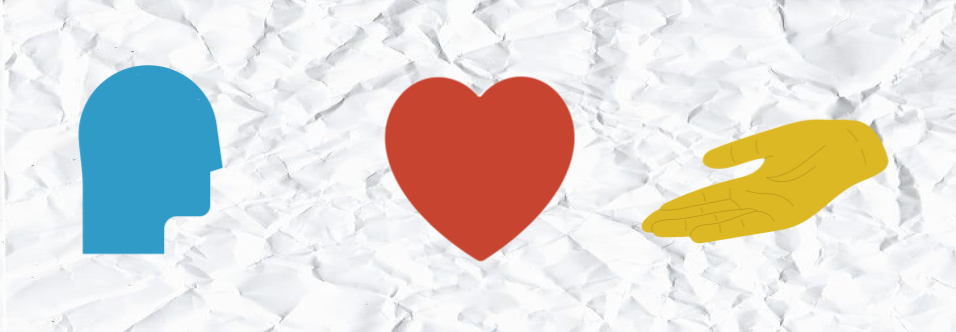
Working in the White House
I started working with the Obama Administration as an entrepreneur in residence for them. I got to have my hands in many different pies at the end of the administration. I also got to create a shared language around innovation and change and was able to create (as I transitioned from the Obama administration into the Trump administration) this movement called “The Better Government” movement. And it allowed different people to have a psychologically safe place where they can engage and grow and share the challenges that they're having… and be better at creating a government that works for all of us.
Building a Career around Empathy
It always felt like in some ways and also in the design world of human-centred design, it always felt a mismatch of people who have power at the top deciding things for people who are at the bottom, and that kind of power dynamic just never really sat well with me. And it's really interesting, going back to the idea of change management, is that McKinsey - another management consulting firm that created the idea of change management and pushed it forward - came back to write an article about four or five years ago, to look back at what kind of impact have we made with this change management that we're doing? and they found in their research that 70% of change efforts fail.
Hurting to Healing to Helping
There's generational trauma, racial, early childhood, disasters and displacements, other trauma can be workplace trauma. It really helps to get a sense of help with therapy first, including somatic therapy, like what I've been working on and work on our individual needs. Then, there's deep healing happening in support groups and I think it's a combination of these two that helps us move to a place from where were hurting and being hurt by dominant oppressive systems that were in, and then finally helping other people to achieve their goals. You're working from hurting to healing and then to helping.
Building Cultures of Innovation
Innovation = Positive change
Like I mentioned before, I’ve been building cultures of innovation for more than a decade and there's something I share deeper in my book. It is that I also feel uncomfortable with the word innovation because it has become an overused word and it really loses its meaning and it's very contextual as well. Also, this idea has been used to create harm by creating a space of the haves - the people who have innovation versus the people who have nots, which is essentially creating a culture that we want to avoid - being like there's people who are privileged and some people who aren't.
What I think is that people want to have organizations where we're working together with a shared purpose and vision and we can feel like we can be human at work and not judged for being that human that's out there. When I think about this workaround innovation, what we're trying to do is to make a positive change. So I reframe innovation kind of like this - innovation really equals positive change. The deeper concept that I bring up is that to have a pathway to do that is to; have deep empathy, deep compassion, and plus action.
Share Power + Give Agency
It depends on who are the people that you're engaging with and working with. If your stakeholders are outside of the organization, it builds trust and empower, not just for yourself. The whole idea is for you to share power and give agency over to different groups of people. When people feel like they are part of something, that they can shape something and they have agency, which agency is essentially this human feeling that they can actually have influence and change the world around them, and that things aren’t just happening to them, that they actually participate in that change.
From Head to Heart, to Hand
After all these different things I paused working in this culture of innovation for a decade, and I was just like why aren't we changing things faster? Why aren't things changing in a bigger way? So, I created a framework and it's found in part three of the book where it's called Empathy in Action and it’s called The Heart, The Head, The Hand Framework. It allows us to catalyze change within our organizations.
When we talk about empathy in action - that's the idea of positive change equals innovation - it also has three components. The head is our rational side thinking, our heart is our emotional side, and the hand is putting all of that into work and into action. That last part, the hand is also known as compassionate empathy, or just simply compassion. There are those three kinds of empathy that show up in the world too.
Crowdsourcing Culture
Before, it was a closed process where only a select few choose the ideas. Now you're opening it up to everybody in the firm votes on ideas and you can have different kinds of moderation in there of course depending on what you feel like. It allows you to open the process up to allow people to say, okay, you're now moving from this power dynamic of us versus them to be like, we're all in this together, you can design with.
I've got so many instances of crowdsourcing that I have used in the past with some of my clients that could be used just to build a report out and to get more information from other groups of people to think about what the future might be like - bringing together this idea of futurism, with culture, with building out a report that looks at the future of Wildland Fire management, for example.
To bring this full circle back to the concept of crowdsourcing culture, there can be lots of different designs that you can do that you can have like standard crowdsourcing challenges where people can crowdsource from thousands of people from around the world what might be your values that you're trying to do? or your shared values? or even what are the practices that you want to have? People submit ideas based on those practices that you want to create more in the action piece.
Cracking the Code on Loneliness
On a more personal level what I'm seeing and what the data is showing us about how we are in culture, in our world, is that we're a deeply lonely country or not just in the country but deeply lonely across the board and we're in need of human connection and we really haven't cracked the code on how we might find it and cultivate that.
Community is Essential
Community is really essential to our belonging and our culture. Our workplaces are undergoing a deep identity crisis and we might not know how to express ourselves or have a place where we feel emotionally and psychologically safe, and it really hinders us at the end of the day… linking it back to this idea of empathy and compassion, it hinders that ability for us to be compassionate with ourselves and with others.
Communities Create Opportunity
I think that communities create opportunities for us as individuals to feel like we're not alone and that all people are flawed, and we can grow into fully realized humans. We can share stories and narratives about who we are and what connects us. We also can meet different people from different backgrounds, help break down preconceived notions about others, and realize that we're more alike than we are different.
And then also we can find out about other people who care about the same issues and help us to act. So there's some action collaboratives that have been stood up in communities that I'm in. It creates this ripple effect that goes to a place of more connection and community building.
Amy's Cooperative and Collaborations
I mentioned at the top of this that there's a cooperative that I'm building. It’s kind of a working agreement with a shared purpose and value, where we're starting to co-create things together in that it should exist in the world. Think of it kind of like crowdsourcing, but in a format that allows us to share profits and look out for each other's mutual benefit.
Podcast: Empathy Power Up
There's some outgrowths that are happening from this cooperative that I've been softly building in the past few years, but are now kind of materializing. I have a new podcast called Empathy Power Up that just launched (relaunched) on Monday. Was LinkedIn Live and then we turned it into a podcast based on feedback that we got from people. There are 20 minutes of empathy goodness that we give to you every week because we think that empathy and compassion can be energizing. I do that with a co-collaborator named Kevin Shah.
Being Human at Work
A second collaboration I have in this cooperative is what we're tentatively calling Being Human at Work, and it’s transforming the self and the company at the same time, to help achieve deeper results. We are doing this with a master storyteller - to uncover our collective stories at the end of the day. There's a lot of things that we're focusing on. Things about; changing the system, and applying storytelling in ways that we can apply it and systems change, looking at storytelling through - the lens of light, as glue, and as web. We can use story to illuminate the pathways ahead, as glue to band us together, and to re-author the webs of narratives we live in. And finally as a web - as in we’ve got this web of narratives - but it can be a personal web of narratives, a cultural web, or a mythic net web of how we talk about our bigger culture in a bigger way. That group is launching, and in 2023 we're building that out.
The Next 5 Years
A Broader Understanding of Well-being
When it comes to the idea of what's changing in the industry over the next five years… I'm seeing a broader understanding of well-being. Just last week, the US Surgeon General Dr. Vivek Murthy wrote a book about the loneliness epidemic we're experiencing - that team just launched the framework for mental health and well-being for the workplace. It focuses on two fundamental human needs; the need to be safe, and the need to be secure. And then they have five pillars in that, I highly recommend looking at it, it’s a wonderful document. It’s focused on connection and community, work-life harmony, this idea of mattering at work, and then opportunities for growth. All of that work is centred on the worker voice and equity.
Equity Design
I think there's some remixed frameworks for how we can do the work moving forward, that is going to come out. For example, one of the things I just joined about a month ago, that I am a founding member of, is the Institute for Equity Design and Justice. It's a new entity being formed by this amazing organization that's tackling systemic racism with redesigning systems of oppression. It's based in St. Louis, Missouri and it's called the Creative Reaction Lab. Going back to that idea of what I was talking about before, of shifting power, giving more agency to people, to change the world around them.
Community vs. Network
The last thing that I'm seeing which is bringing this all full circle is that communities are going to be growing in popularity, especially now that we're coming back after the pandemic - this time has been a period of intense anxiety, of loneliness, and turmoil. New communities are going to be emerging, that are focused on the whole individual.
A lot of us are popping into networks, which only see a piece of who we are, and it kind of divides us into parts. Networks are very large and anonymous and it's usually top-down - it's just really a passive environment, and it's based on consumption. On the other side is community, which sees us as a whole flawed human, it's a place where we face each other over time and all our human variety, the good parts, the bad parts and all the rest.
This helps wing us into that direction, which is making for Dr. King's vision, to create that beloved community everywhere. Where everywhere we roam at the end of the day his vision of equity, of caring for our fellow humans, is going to be something I think we're going to be seeing a lot more of in the next five years.
~
Thank you for checking out Episode #7 of the Innovation Heroes series!
Let's keep the conversation going! Interested in chatting with Adam on an Innovation Heroes segment or recommending a guest? To join the queue, send an email to Attn: Adam. Include your name, email, and topic of interest (you can also use the HeroX contact form).
%203000%20x%203000%20-%202.jpeg)
Keep your sights on this powerful leader as she continues to redefine the way we build and sustain cultures of innovation with social good as a mission.
About Amy J. Wilson | Connect
Amy is the founder and CEO (that’s Chief Empathy Officer) of Empathy for Change and has held many other interesting positions over her career. Her focus is on building communities through compassion, to serve the well-being of all.
Book - https://amzn.to/3hSHzPeAs a tireless thinker who is intensely curious, Amy is passionate about bringing a "whole brain approach" to building cultures of innovation and entrepreneurship. As the Founder and CEO of Empathy for Change, she works with change leaders to create more understanding - one person, team, and organization at a time. Overall, she inspires us to embrace kindness to enrich the world.
Connect with Amy: LinkedIn, Contact Form
🔉 About the Innovation Heroes podcast
The Innovation Heroes series covers all things open innovation, crowdsourcing, and remote work. It’s time to open up the airways, share strategies, engage partners, and leverage the power of crowd intelligence to expedite solutions to the pressing problems facing every level of organization, individuals, and the world. The key word here is OPEN.
We're bringing our partners in innovation, organizations who have run their own crowdsourcing projects, innovator powerhouses, and remote work legends into the spotlight. There is a global network ready to contribute time, energy and intelligence to just about any challenge that comes their way. All we need to do is provide the opportunity. Thank you for being a part of the solution. Discover the Power of the Crowd
About Adam Olsen | Connect
Adam is your Podcast Host and Possibilities Manager at HeroX, connecting with innovation leaders from around the world to gain insights on how they approach innovation, the technologies they're most excited about, and how these innovations impact their industries.
HeroX is a platform and open marketplace for crowdsourcing innovation that allows anyone, anywhere, to solve everyday business and world challenges using the power of the crowd.
Connect with Adam: LinkedIn,
About Amy's Book - Empathy for Change
In Empathy for Change: How to Create an Understanding World, former White House entrepreneur-in-residence Amy J. Wilson dives into the intricate science of empathy, debunking common myths and sharing practical uses for a better society. Having built cultures of innovation and change across multiple sectors, she knows that when we do not design with compassion, we remove the humanity and closeness we have to one another.
#innovation #changemakers #culture #empathy #therealamyjwilson #HeroX
Your Crowd. Your Solution
